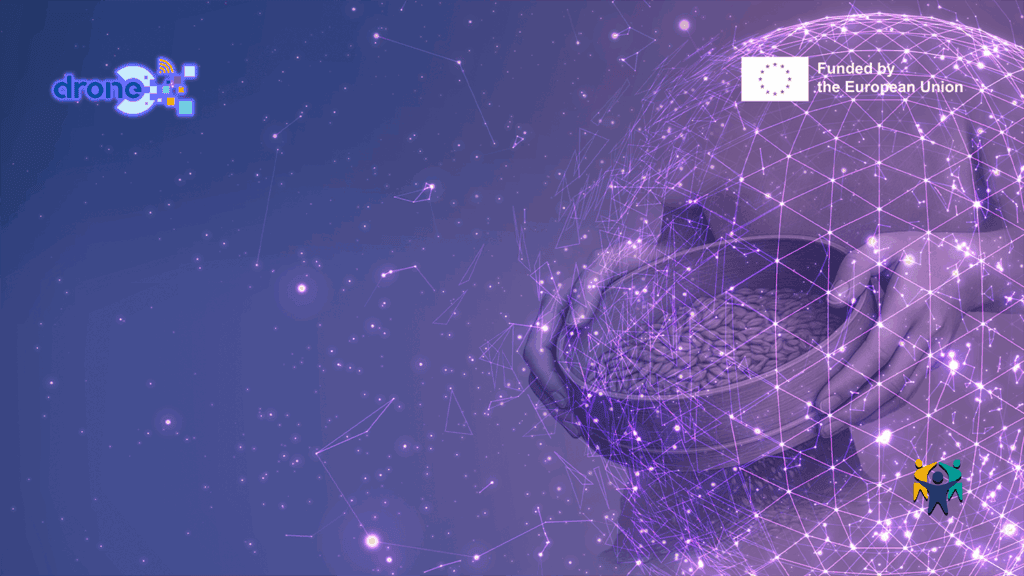
In this article
The second Transnational Project Meeting for the Erasmus+ DRONE Project took place on December 12th and 13th, 2023, in Budapest, Hungary. Hosted by Eötvös Loránd Tudományegyetem, the meeting gathered representatives from all eight consortium partners, including Parents International, to evaluate progress, ensure alignment, and strategize for the next phases of the project. With its focus on advancing digital literacy and addressing disinformation among vulnerable adolescents, this ambitious project continues to make significant strides across Europe.
What is the DRONE Project?
The DRONE project, short for “Teacher and school leaders training to promote Digital liteRacy and combat the spread of disinformation among vulNerable groups of adolEscents,” is an Erasmus+ initiative designed to tackle critical issues in digital literacy education. By equipping teachers and school leaders with the tools they need to address media literacy, artificial intelligence (AI), and the dangers of disinformation, the project aims to create a more informed and resilient generation of young people.
Led by eight esteemed partners across Europe, the consortium comprises the following organizations:
- Hellenic Open University, Greece
- C.M.T. Prooptiki Consulting Management Training, Greece
- Eötvös Loránd Tudományegyetem, Hungary
- European School Heads Association, Netherlands
- Paidagogiko Institouto Kyprou, Cyprus
- Stichting International Parents Alliance, Netherlands
- University of Nicosia, Cyprus
- Politecnico di Torino, Italy
This diverse collaboration underscores the project’s pan-European approach, ensuring broad perspectives and inclusive methodologies.
Highlights from the Budapest Meeting
The Budapest meeting marked a critical milestone in the project’s timeline. During the two-day gathering, partners reviewed and finalized key deliverables, including national and synthetic reports based on qualitative data collected from stakeholders such as teachers, school leaders, students, and parents. These reports delve into crucial topics like:
- Media literacy: Understanding and evaluating media content critically.
- Disinformation: Identifying and combating false or misleading information.
- Artificial intelligence (AI): Exploring its implications for education and literacy.
This foundational work is essential for the next phase: conducting qualitative research among secondary education students to further explore these themes and inform future strategies.
The consortium also enjoyed a thoughtfully planned social program, fostering closer relationships while appreciating Budapest’s rich cultural and historical heritage. This aspect of the meeting reinforced the collaborative spirit integral to the success of Erasmus+ projects.
Project Objectives: Advancing Digital Literacy and Beyond
The DRONE project is built around a comprehensive strategy with clearly defined objectives aimed at addressing the gaps in digital literacy education. These objectives include:
- Identifying gaps in existing research on digital literacy among teachers and students to address areas of need.
- Conducting field research using mixed methods to gather qualitative and quantitative data from teachers, school leaders, students, and parents.
- Developing and piloting innovative training materials tailored for educators and school administrators.
- Expanding the training program across the European Union and Ukraine to maximize its impact.
Through these goals, the project seeks to empower educators with the tools they need to support students in navigating an increasingly complex digital world.
The Importance of the DRONE Project
In today’s interconnected and digital-first society, the ability to critically analyze information is a vital skill. Adolescents, as avid users of digital platforms, are particularly vulnerable to disinformation and misinformation. Teachers and school leaders, however, often lack the resources and training to address these challenges effectively.
The DRONE project fills this gap by:
- Providing actionable training for educators to promote digital literacy in classrooms.
- Enhancing awareness of the ethical and societal implications of AI and media literacy.
- Cultivating resilience against misinformation through practical tools and strategies.
This holistic approach ensures that students are not only informed but also capable of contributing positively to their communities.
Next Steps for the DRONE Project
Following the Budapest meeting, the project moves into its next phase: qualitative research among secondary school students. This research will inform the creation of training materials that are both effective and scalable. Additionally, the piloting phase will test these materials to ensure they meet the diverse needs of educators across Europe.
With plans to expand the training program to Ukraine, the DRONE project aims to create a lasting impact on digital literacy education across the continent.
Closing Thoughts
The second consortium meeting of the Erasmus+ DRONE project in Budapest was a testament to the power of collaboration and shared purpose. As the project progresses, its efforts to address digital literacy and combat disinformation promise to create significant benefits for educators, students, and society as a whole.
For more information about the Erasmus+ DRONE Project and its initiatives, visit the official website: https://mydroneproject.eu/20-2/.